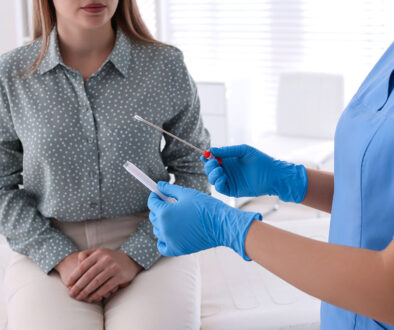Your Invisible Risk: STDs With No Symptoms
You’ve not given much thought to STDs. After all, you’ve never had any of the itching, blisters, discharge, or burning typically associated with these diseases. So there’s no need for concern.
That is a mistake.
There are some STDs with no symptoms, so you could have them and unknowingly spread them to your partner. In addition, they can have long-term effects on your fertility and overall health.
For this reason, our gynecologists in Raleigh recommend regular STD testing. We care about our patients, and we offer an environment free of judgment. You should never be embarrassed to talk with us about your sexual health, as this is an important part of your total well-being. If you’re concerned that you may have an STD, we encourage you to schedule an appointment.
So if you have no symptoms, what should you watch for? Are there any clues that could indicate you have an STD? We’ll review the information you need to know to protect yourself and your partners.
STDs With No Symptoms Are More Common Than You Realize
How can you have an STD if you have no symptoms? It’s more likely than you realize.
For example, let’s look at gonorrhea and chlamydia (aka “the clap”). Some studies show that between 45% and 75% of gonorrhea and chlamydia were asymptomatic STDs. As a result, these infections were never treated.
Which STDs Have No Symptoms, and How Do I Know If I Have One?
Sometimes, the following STDs don’t show any symptoms:
- Chlamydia- While this is often asymptomatic if you do have signs, they can include painful urination, discharge, and painful sex.
- Gonorrhea- Again, this sexually transmitted disease can have no signs–so most people who have it are unaware. If symptoms do appear, they include pain, bleeding between periods and discharge.
- HPV- While most strains do not cause symptoms, others can cause problems such as genital warts. Eventually, HPV can lead to certain types of cancer. Because there is frequently no sign of an HPV infection, it’s easy to spread the disease to others without knowing it.
- HIV – This varies dramatically among individuals. While some may have symptoms within weeks, others may not show any for years.
- Trichomoniasis (“Trich”) – This disease may or may not have symptoms. In certain cases, it may take several months for issues to develop. When they do they can include vaginal discharge, painful urination and even abnormal bleeding.
How Do I Know If I Have an STD?
If you have symptoms, you should get tested. But because we’ve mentioned several infections that don’t cause symptoms, we recommend regular STD testing and practicing safe sex. This is the most reliable way to minimize your chances of getting infected.
How Will My STD Be Treated?
We’ve covered a lot of this in detail in our earlier blog “Effective Treatments for the Most Common STDs” that we encourage you to read.
Obviously, the type of treatment you’ll receive depends upon the type of STD you have, your medical history, and your symptoms. We may prescribe antibiotics, but in certain cases–such as herpes– there may be no effective treatment. If that is the case, we will help you manage your symptoms.
Associates in Women’s Healthcare: Helping Protect You From STDs
Because some STDs show no symptoms, it’s vital to have regular testing to ensure you get the treatment you need and that you don’t spread it to your partners. You need a judgment-free zone where you can speak your mind and have a frank and honest conversation with your healthcare provider.
This is the kind of care we offer through our gynecologists in Raleigh at Associates in Women’s Healthcare. Some STDs, if left untreated, can lead to infertility or increase your risk of complications during pregnancy.
If you’re overdue for testing, we encourage you to contact us. We want to work together as a team to ensure your sexual health.
The information in this article and the other articles on this website is for educational purposes only and is not intended as medical advice. If you have questions or concerns, please contact your healthcare provider.





